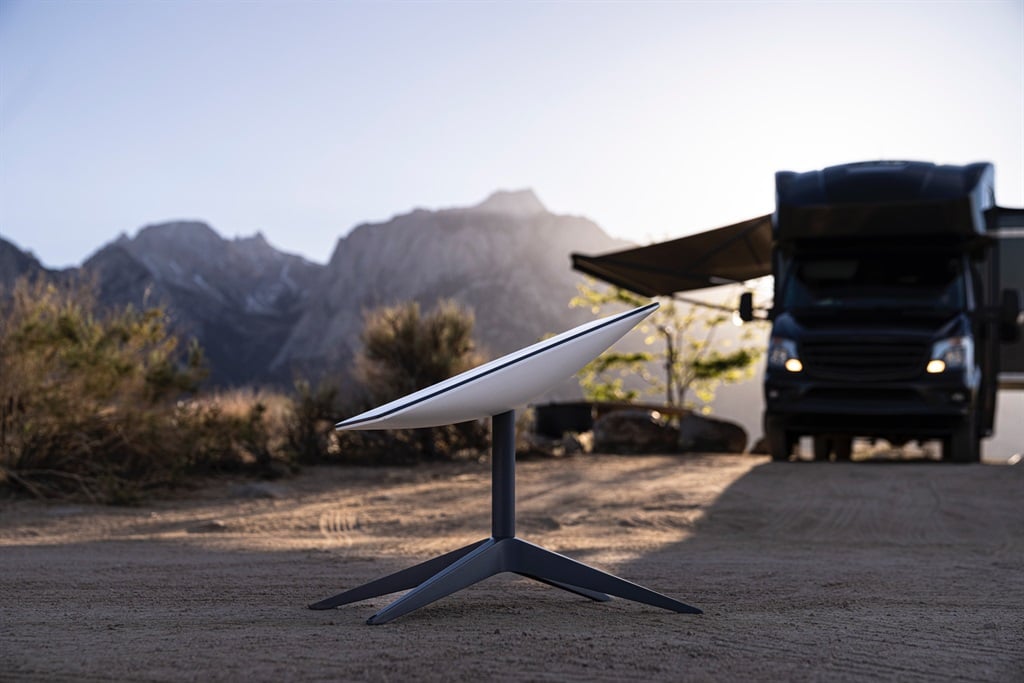
- The communications regulator told an internet service provider in the Northern Cape to stop enabling South Africans to use Starlink.
- The Satellite internet service is a game-changer for high speed internet access in rural communities.
- Starlink does not currently have a licence to operate in SA, but thousands have been using a creative method to access its services.
- For more stories, visit the Tech and Trends homepage.
The South African communications regulator ordered an internet service provider (ISP) in the Northern Cape to stop enabling South Africans to access Starlink’s satellite internet services.
This is according to the director and investor of IT Lec, Mauritz Coetzee, who spoke to News24 about the letter his company received last week from the Independent Communications Authority of South Africa (Icasa).
IT Lec has, for a number of months, been acting as a third-party company, which imports and manages South African customers’ Starlink accounts on their behalf.
Coetzee has previously told News24 that IT Lec has facilitated Starlink services for thousands of customers in South Africa.
This was despite the fact that Starlink does not have the approval of Icasa to operate in South Africa.
Icasa is responsible for providing electronic communication services to companies with licences to operate in South Africa.
It previously told News24 that Starlink had not applied for the necessary licences to operate in South Africa.
Icasa also said that applicants must “have a minimum 30% equity ownership held by persons from historically disadvantaged groups”.
So, while it is technically possible to access Starlink in South Africa, because there is network coverage in the country from its fleet of low-earth orbit satellites, it is not possible to take out a package with Starlink or to purchase the equipment required to access Starlink, as the company does not have a licence to operate in South Africa.
But, IT Lec made a plan to provide South Africans with access to Starlink’s satellite internet services, which are a game-changer for rural communities in South Africa.
READ NOW | Over a thousand South Africans already using Musk’s Starlink, even though it lacks regulator’s nod
Historically, it has been difficult for network operators to serve rural communities as rolling out expensive infrastructure in areas with a low population density is difficult to make profitable.
But, with satellite internet providers like Starlink, the infrastructure required to create a network comes from the network of low-earth orbit satellites, which allow for access to network services across the globe, not just in wealthy or high population density areas.
Starlink has enabled faster speed internet connections than have previously been possible with satellite internet services, by maintaining their satellites in low-earth orbit. This means they are closer to Earth and less time is taken for the signals transmitted by the satellites to be received on the ground.
READ NOW | Starlink must be 30% owned by historically disadvantaged groups if it wants to operate in SA – Icasa
Earlier this year, Starlink launched an international roaming feature that allows customers who take out a Starlink kit in one country to use Starlink’s services across the world. So long as a Starlink roam customer has their Starlink kit, which includes an antenna to receive a signal from the satellites, as well as a Starlink wifi router, they can access the internet through Starlink.
Essentially, IT Lec was able to provide Starlink services for South Africans by taking out a Starlink International roaming subscription in a country where Starlink was authorised to operate and importing the kits into South Africa for clients.
Thus, IT Lec would not provide a Starlink connection for customers, but would act as a third party that would take out a Starlink package and import the required infrastructure on customers’ behalf.
Pulling the plug
But, Icasa is now trying to stop IT Lec from enabling South Africans to access Starlink in this way.
MyBroadband quoted a section of the letter received by IT Lec from Icasa, which Coetzee confirmed to be accurate:
IT LEC (Pty) Ltd should, within three days of receipt of this letter, stop and refrain [from] acquiring, distributing and facilitating sale of any Starlink products in South Africa, that will in any form provide satellite access to the Starlink services.
IT Lec is complying with the order.
A banner on the IT Lec website reads:
All satellite internet services have been suspended. Unfortunately, we cannot provide a timeline for when the orders will become available again. Please contact our offices for more information.
But, Coetzee said that IT Lec’s legal team was challenging some of the assertions made in the letter from Icasa, and that existing customers would not be impacted by the order as an alternative plan had been made.
He said that IT Lec would no longer be dealing with Starlink services, but a new company, registered in Mozambique, where Starlink was licenced to operate, was taking over the role of managing the subscriptions.
“Basically, we are just going on with the service. IT Lec are not going to provide services anymore, we are also not going to sell any services anymore. We are going to move everything to a company registered in Mozambique, that will do exactly what we did.”
Unfortunate
Coetzee said it was sad to see the steps that needed to be taken to continue enabling Starlink access for South Africans.
He said the regulatory challenges were not necessarily what Icasa wanted either.
“It’s not like Icasa doesn’t want to get Starlink approved, they have to adhere to government rules.”
News24 reached out to Icasa to get comment for this article, but did not receive comment by the time of publication.
There is still no timeline for when Starlink will be licenced to operate in South Africa, while many other African countries are coming online.